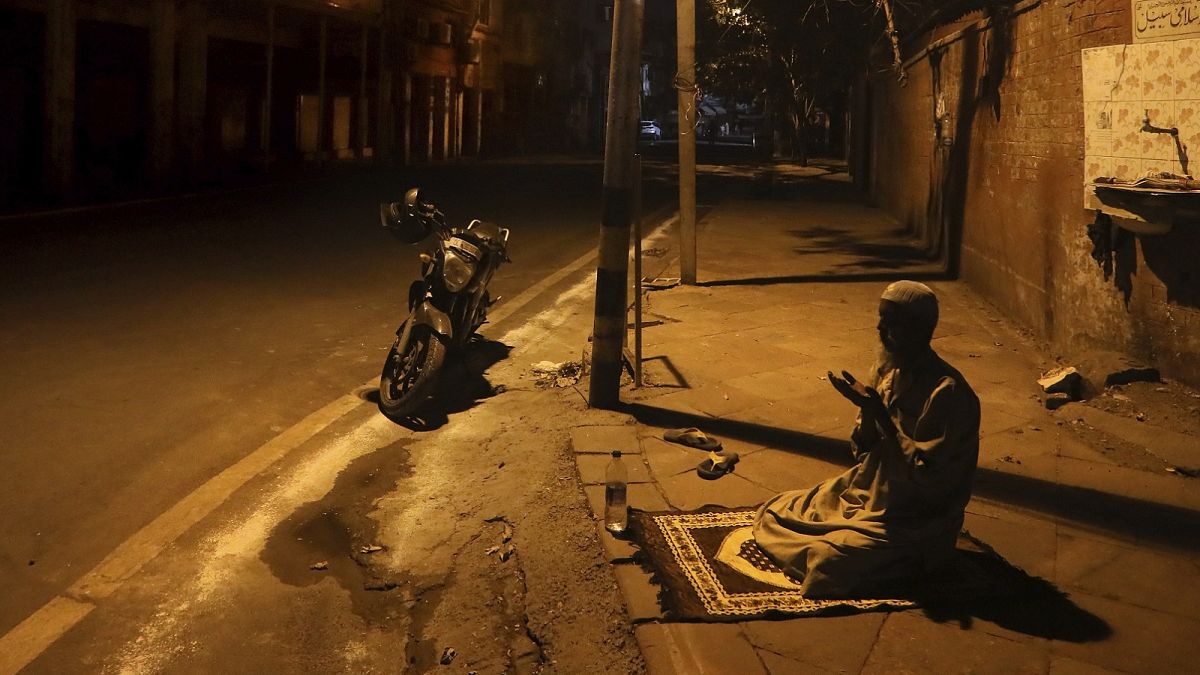This year, probably for the first time in history, instead of urging people to unite and congregate, we Muslims must come together to urge people to stay apart. For us aid workers, it has created a conundrum of how to keep people safe while also getting food aid to hundreds of thousands of families.
Ramadan is usually a time for coming together - of bustling cafes at the breaking of the fast (or Iftar), late-night family gatherings and packed night-time prayers at busy mosques where worshipers mark the Islam’s holiest month.
But this year, probably for the first time in history, instead of urging people to unite and congregate, we Muslims must come together to urge people to stay apart.
For us aid workers, it has created a conundrum of how to keep people safe while also getting food aid to hundreds of thousands of families who depend on us for what is often their one meal of the day.
Poverty, overcrowding, and wars all make it hard to strike the right balance, but so does misinformation. This Ramadan, we are determined to root it out and ensure people have the knowledge – as well as the supplies - they need to keep safe.
Fighting misinformation alongside poverty
In many places, the authorities are weak and religious communities and faith leaders are left bearing the brunt of the crisis. With trust between the two often low, official policy can be slow to trickle down.
In Somalia, official guidance on mosque closures is simply being ignored. In South Asia, certain religious sects were exceedingly slow to heed advice on social distancing. In numerous places, alcohol-based sanitisers are being viewed as forbidden, or “haram,” despite officials imploring people to see them as a first line of defence. Worldwide, unproven claims about cures and causes are propagated faster than the disease – and few communities, religious and secular alike, seem immune.
At times like these, religion is often misinterpreted as the enemy of science. That is not the case. As we learnt during the Ebola crisis, only by winning the trust of all faith communities, speaking their language and successfully tapping into their networks, can we quickly and effectively reach millions of people.
Back during the 2015 outbreak, the world was too slow to act and many died unnecessary.
Today, a broad range of religious scholars, as well as the World Health Organisation (WHO), have vowed to get ahead of the problem. By collaborating effectively, we have devised practical guidelines that marry medical knowledge about tcoronavirus with religious teachings on how Muslims can stay safe. These were disseminated to at-risk communities ahead of Ramadan.
The guidance on safe religious practice for Muslim communities during the coronavirus pandemic shows that at times like these it is completely permissible for Muslims to refrain from performing any collective form of worship, such as daily prayers or funeral prayers, in high-risk areas.
It also stresses the importance of social distancing, explains the Islamic duty (or wajib) of self-isolation if a person is exhibiting symptoms, and stresses one’s sacred obligation to not spread falsehoods and misinformation that may harm others.
It is filled with practical advice; from providing details on safe Islamic burial rites, such as replacing a shroud with a body bag, to not washing the deceased for safety reasons.
When we consider that mass graves have been dug in New York and the UK, guidance like this will be desperately needed if the virus were to take hold in Africa or the Middle East where fragile health systems, chronic overcrowding and mass displacement threaten to make perfect hosts for the disease.
Nor is this a purely Islamic issue. Our friends at Christian aid organisations are devising their own guidelines and a consortium of aid organisations like Christian Aid, Cafod and Tearfund are busy engaging different faith leaders in a bid to arm billions of people with the knowledge they will need.
Changing the face of aid delivery
Of course, to truly have a chance to overcome the biggest global challenge of our time, faith-based education must be backed with practical solutions.
To encourage best-practices, governments and other aid agencies have launched awareness campaigns on a truly global scale. We’re working together to overcome lockdowns by increasingly turning to technology and the radio waves to reach those confined to their homes.
We’re also delivering supplies worth millions of US dollars, ranging from PPE equipment, such as gloves and masks, to ventilators. All of our distributions in dozens of countries have been turned on their head.
This year will not see entire communities gather to receive our mass food deliveries that provide food-insecure families some relief for the holy month. Instead, we are going door-to-door or sending private text messages to arrange specific pick up times. Facemasks await people instead of smiles and hand sanitiser greets them instead of handshakes and hugs.
In some areas, hygiene kits with supplies like protective gloves will be handed out alongside Ramadan food supplies. In others, we may have to decide whether to put health needs above hunger.
Changes like these can feel unsettling but even as the lights and festivities of the holy month fall dim, I will take comfort in knowing that our physical distance isn’t allowing us to be divided. That amidst all the uncertainty and pain, century-old Islamic teachings can inspire us to adapt and stay safe and that when working together - religion, science and a global sense of community - will help us to overcome.
- Naser Haghamed is the CEO of Islamic Relief Worldwide.
____________
Are you a recognised expert in your field? At Euronews, we believe all views matter. Contact us at view@euronews.com to send pitches or submissions and be part of the conversation.
